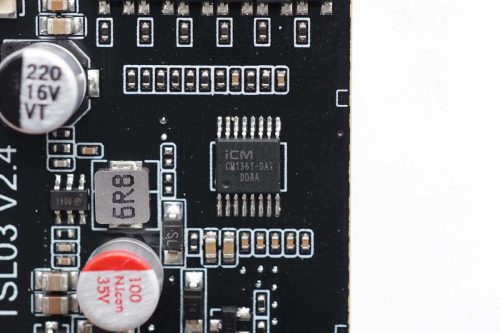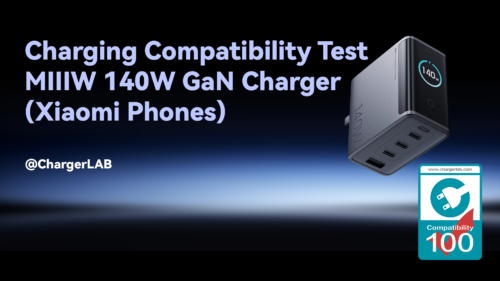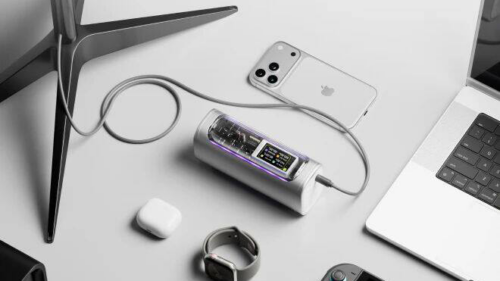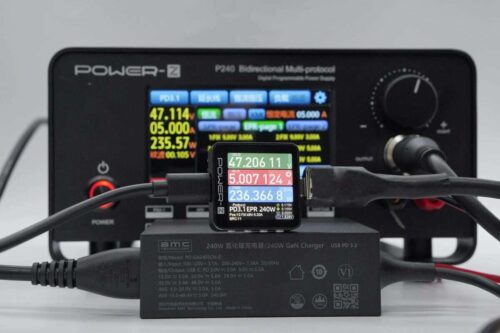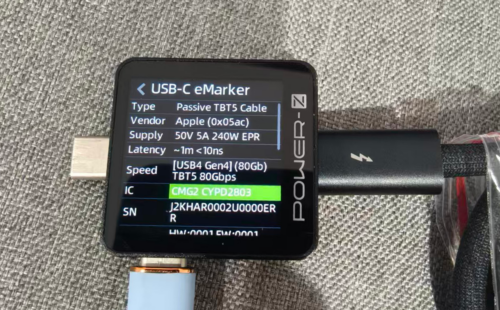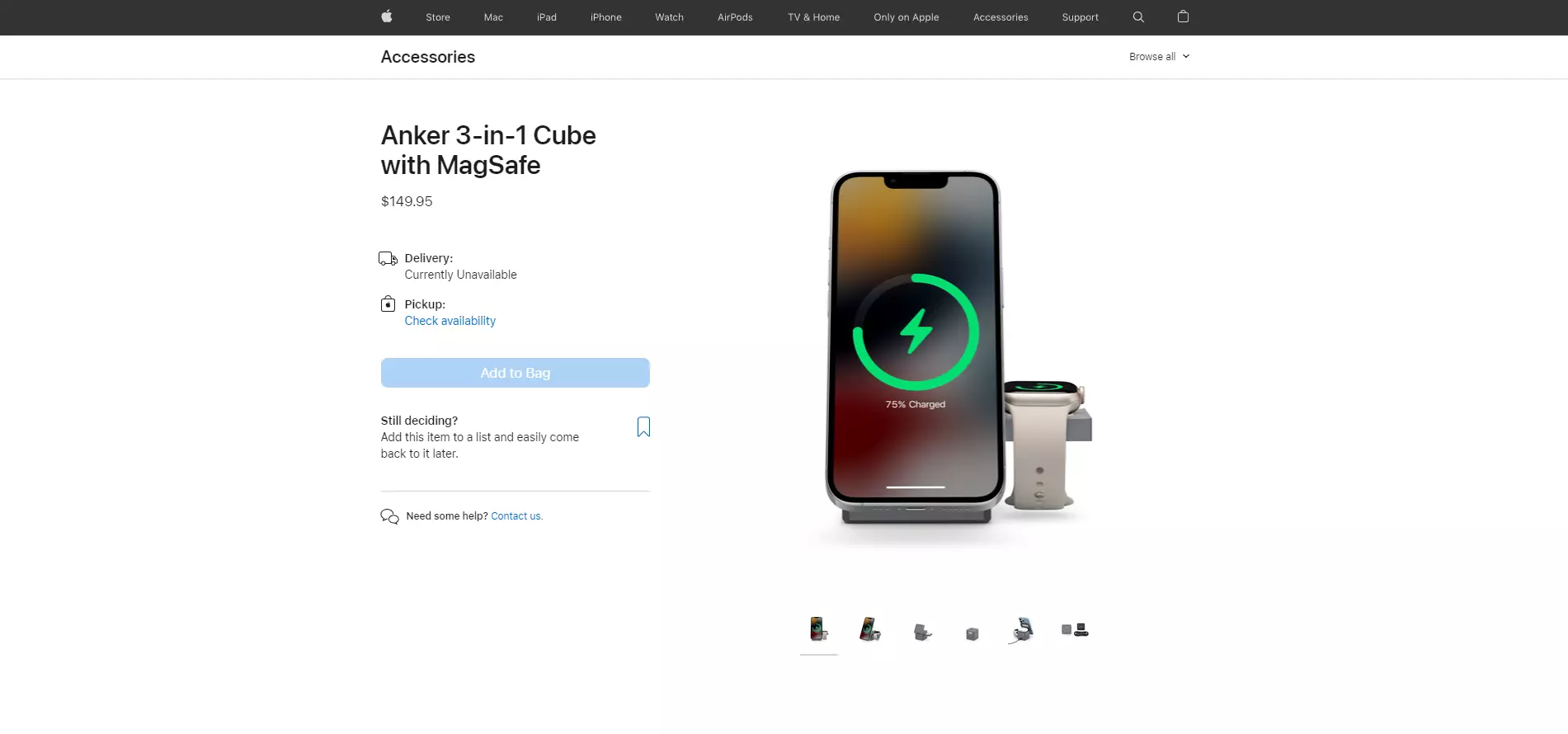Introduction
The Tesla Megapack is a large-scale commercial energy storage system developed by Tesla, primarily used to store electricity generated from renewable sources such as solar and wind energy and to release it when needed. Its successful mass production and commercialization mark not only a technological breakthrough but also a revolution in the energy industry, playing a positive role in energy conservation, emission reduction, and the achievement of carbon neutrality.
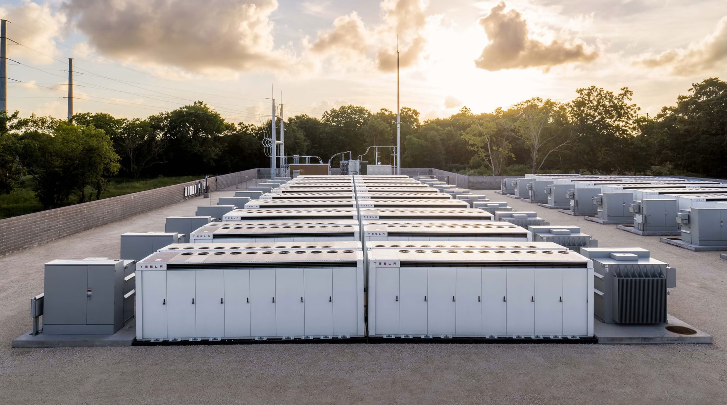
At the same time, Tesla has also launched a product on its official website called the Scale Megapack Charger, a portable power bank priced at $120. This device is a 1:40 scale replica of the Megapack energy storage system, faithfully capturing its industrial design aesthetic. As a collectible for Tesla fans or tech enthusiasts, it holds great commemorative value.
In a teardown of the Tesla 1:40 Scale Megapack power bank, we discovered that its lithium battery protection chip comes from iCM. The following will provide a detailed introduction to this component.
TESLA 1:40 Scale Megapack Charger
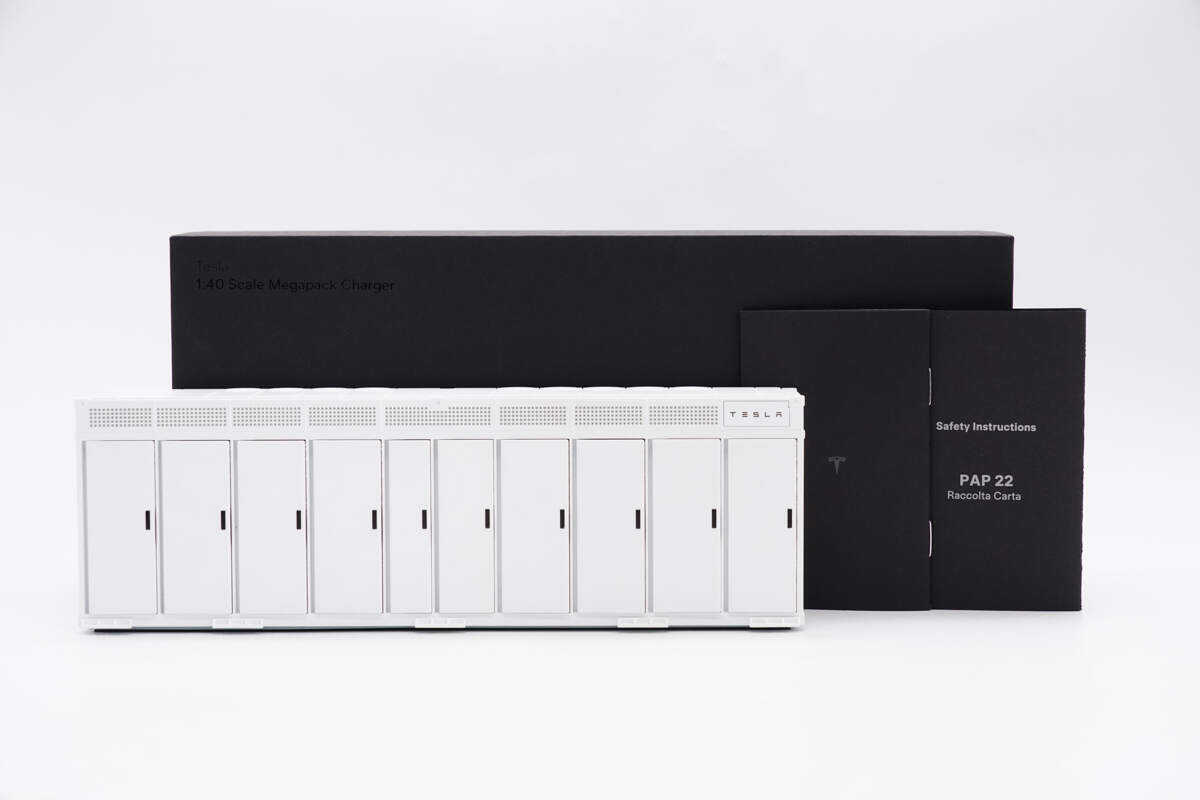
The power bank faithfully replicates the iconic design of the Megapack energy storage system at a 1:40 scale. It features a sharply defined rectangular silhouette with a matte metallic finish, capturing the industrial essence of its full-sized counterpart.
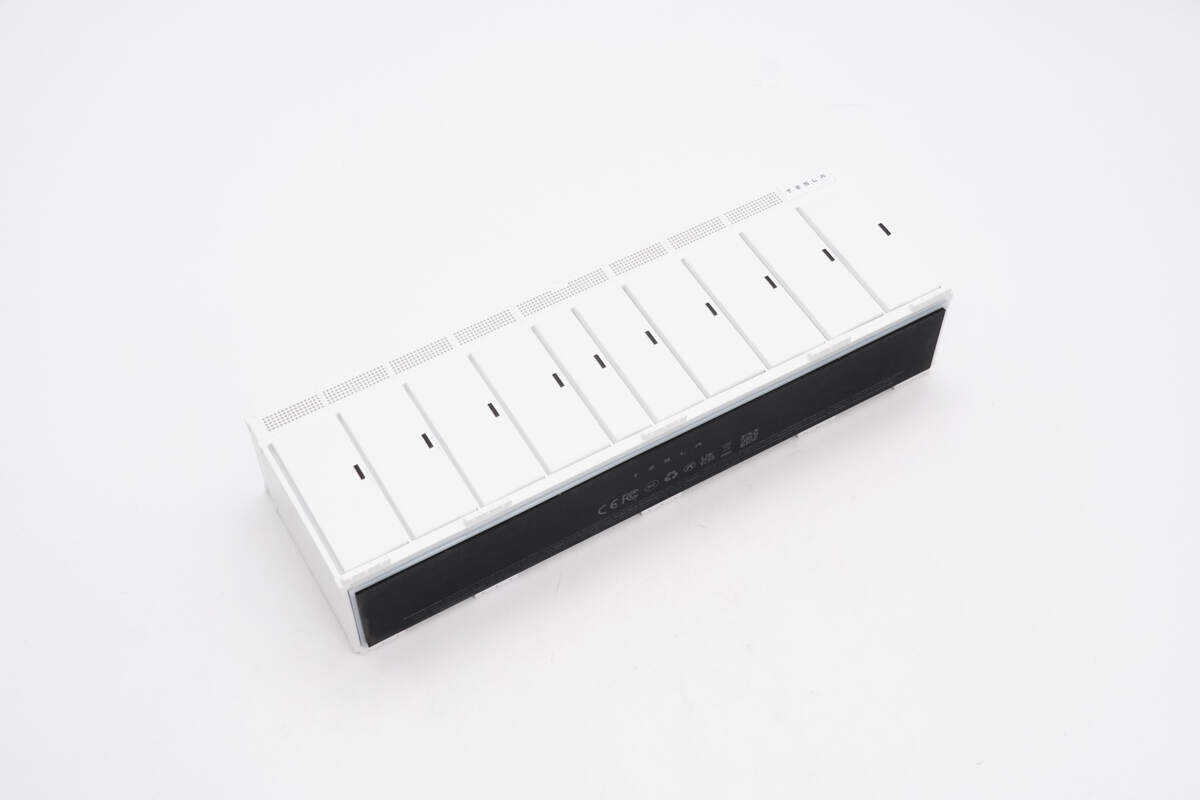
All service access panels are movable components, revealing intricately detailed replicas of internal battery packs and wiring once opened—showcasing impressive craftsmanship and attention to detail. The multiple cooling fans on the top deeply restore the Megapack.
iCM CM1361
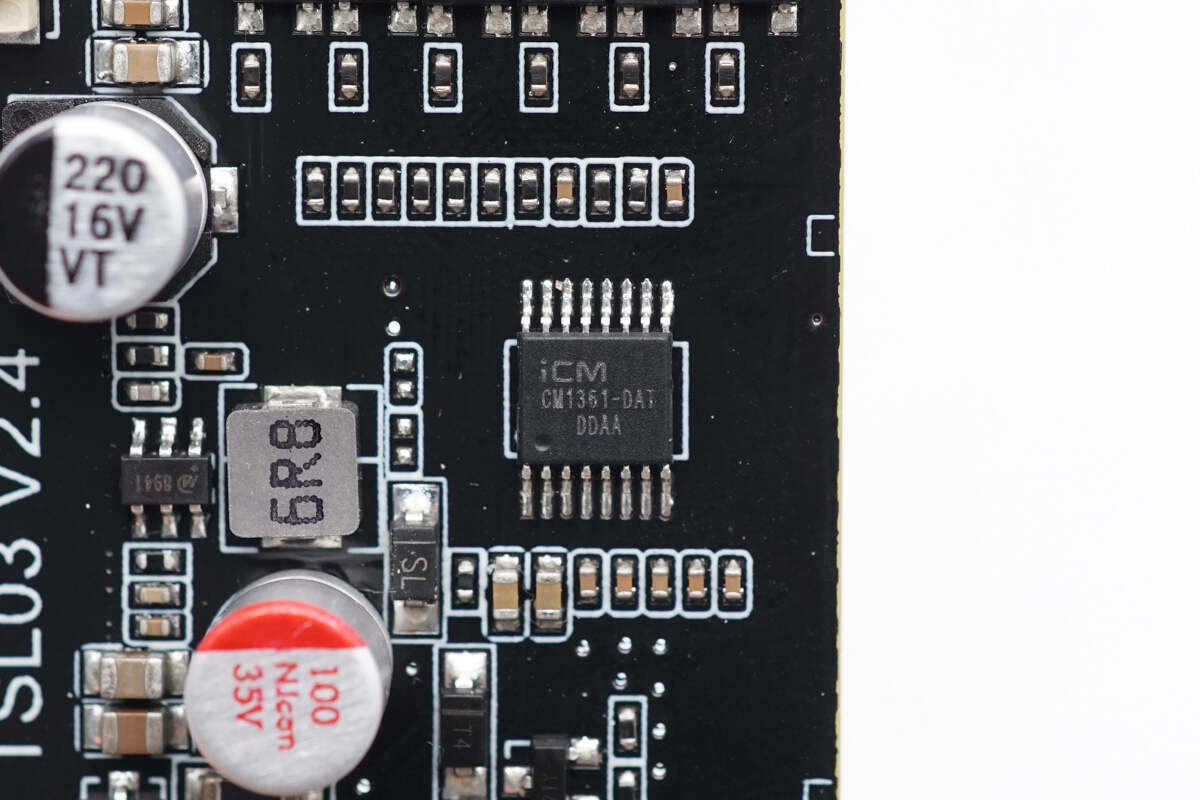
The iCM CM1361 is a battery protection chip designed for applications with 6-cell battery packs and supports battery balancing functionality. It features high-precision voltage and current detection circuits built into the chip, allowing it to monitor the voltage, current, and temperature of each cell in a series-connected battery pack. The chip provides multiple protection features, including overcharge, over-discharge, charging overcurrent, discharging overcurrent, overheating, and battery pack disconnection protection.
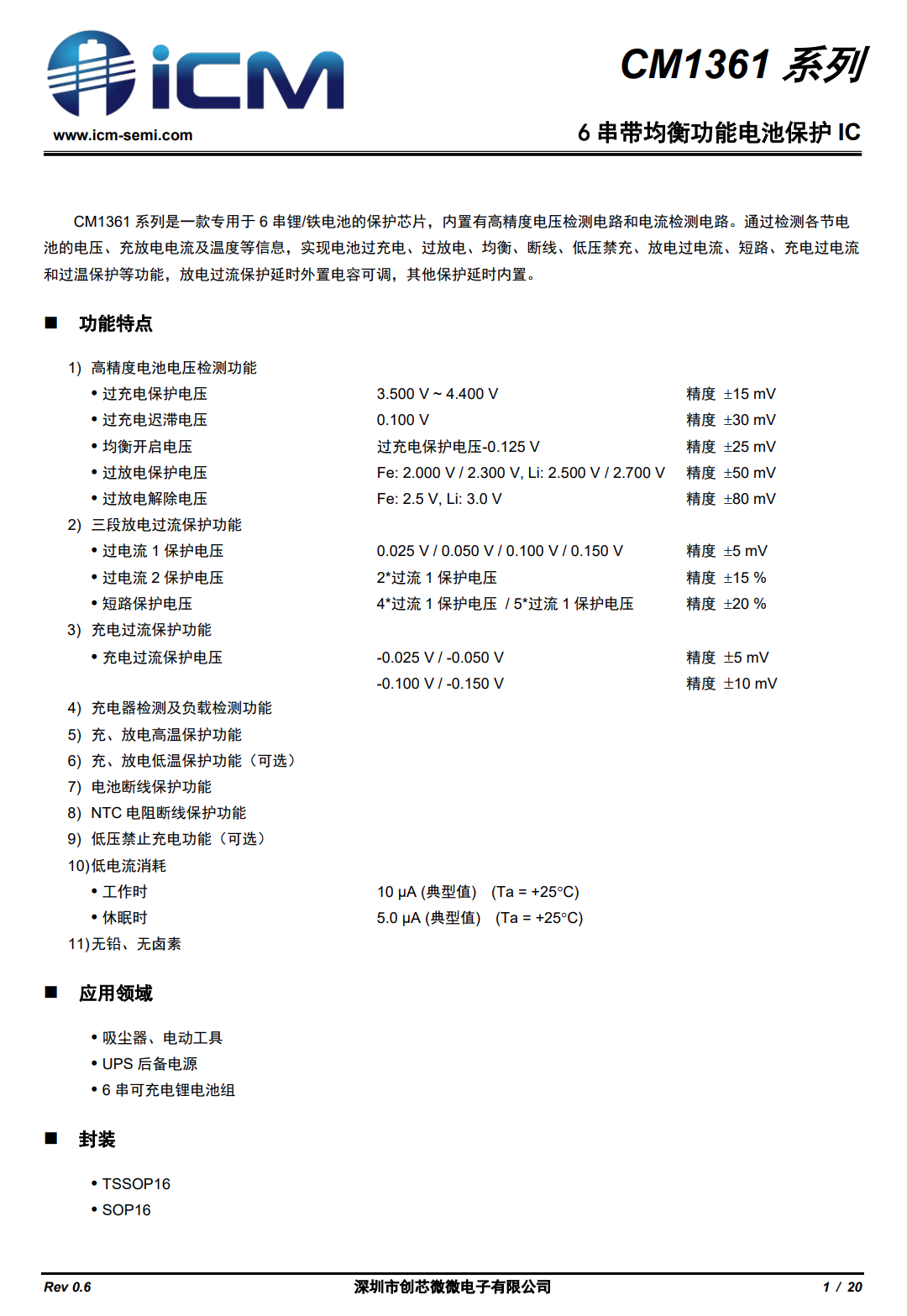
The iCM CM1361 features an overvoltage detection accuracy of 15mV and supports high-precision battery current detection through an external sampling resistor. With the addition of the balancing function, each cell in the battery pack can be fully charged, maximizing overall battery performance. The chip also supports external thermistors for battery pack temperature protection and offers customizable functions to meet the protection requirements of multi-cell lithium battery packs.
Summary of ChargerLAB
The entry of iCM’s lithium battery protection chip into Tesla’s supply chain marks a significant milestone for Chinese semiconductor companies, showcasing a solid step forward in integrating into the global high-end industrial chain. The Tesla Megapack energy storage system and its derivative product, the Scale Megapack Charger, exemplify the deep integration of industrial aesthetics and technological innovation. The inclusion of the iCM CM1361 chip enhances the product’s safety and reliability. With its high-precision voltage detection, multi-level current protection, and battery balancing functions, the CM1361 not only optimizes energy unit performance but also aligns with Tesla’s stringent safety standards.
This collaboration is both a testament to iCM’s technical strength and a reflection of the growing global competitiveness of Chinese chipmakers in the new energy sector.
From a technological perspective, iCM has established a strong presence in the lithium battery protection field. Its chip solutions cover single-cell to multi-cell battery packs and are widely used in consumer electronics by leading brands such as DJI, OPPO, and Xiaomi. Its recent entry into Tesla’s supply chain further validates its ability to transition from consumer-grade to industrial-grade and automotive-grade applications. In sectors like electric vehicles and energy storage, where the precision and stability of battery management chips directly impact system lifespan and user safety, iCM’s achievement sets a benchmark for domestic chip substitution and highlights a new level of capability in China’s semiconductor industry.

